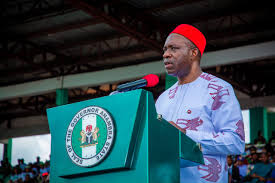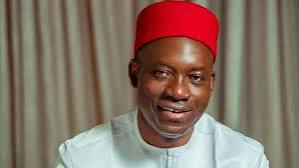Anambra State Governor Charles Soludo has called for elected officials in Nigeria to be paid the minimum wage to better understand the economic struggles of the average worker. Speaking at The Platform event in Lagos, Soludo emphasized the need for government officials to lead by example and demonstrate fiscal prudence.

Soludo highlighted the disparity between the economic realities faced by ordinary Nigerians and the lifestyles of government officials, stating that “Nigeria is very poor and broke.” He criticized the “obscene flamboyance” displayed by officials and argued that this disconnect exacerbates public frustration.
The governor’s proposal aligns with the sentiments expressed by Reverend Father Ejike Mbaka and comes amid ongoing disputes between labor unions and the Nigerian government over the national minimum wage. Soludo revealed that he has not taken any salary since assuming office in Anambra, donating it instead to the state, demonstrating his commitment to fiscal discipline and solidarity with the working class.
Soludo also proposed a new code of conduct for elected officials to enhance fiscal prudence, emphasizing the need for awareness and responsibility regarding public trust. He urged officials to be conscious of how their wasteful spending affects citizens, stating that “for each of our wasteful spending, let’s be conscious about the fact (of) how many citizens’ shares we are squandering.”
Soludo’s comments call for significant reforms in the management of public funds and the lifestyles of public officials. By advocating for elected officials to live on the same wages as the average worker, he aims to foster a deeper understanding and connection between the government and the people it serves. His stance highlights the need for greater fiscal responsibility and empathy in governance, essential for addressing Nigeria’s economic challenges and rebuilding public trust.
As Nigeria continues to grapple with economic difficulties and labor disputes, Soludo’s proposals offer a perspective focused on equity, responsibility, and transparency in governance. His actions and recommendations underscore the importance of aligning public officials’ experiences with those of the citizens they represent, advocating for a more inclusive and empathetic approach to leadership in Nigeria.




